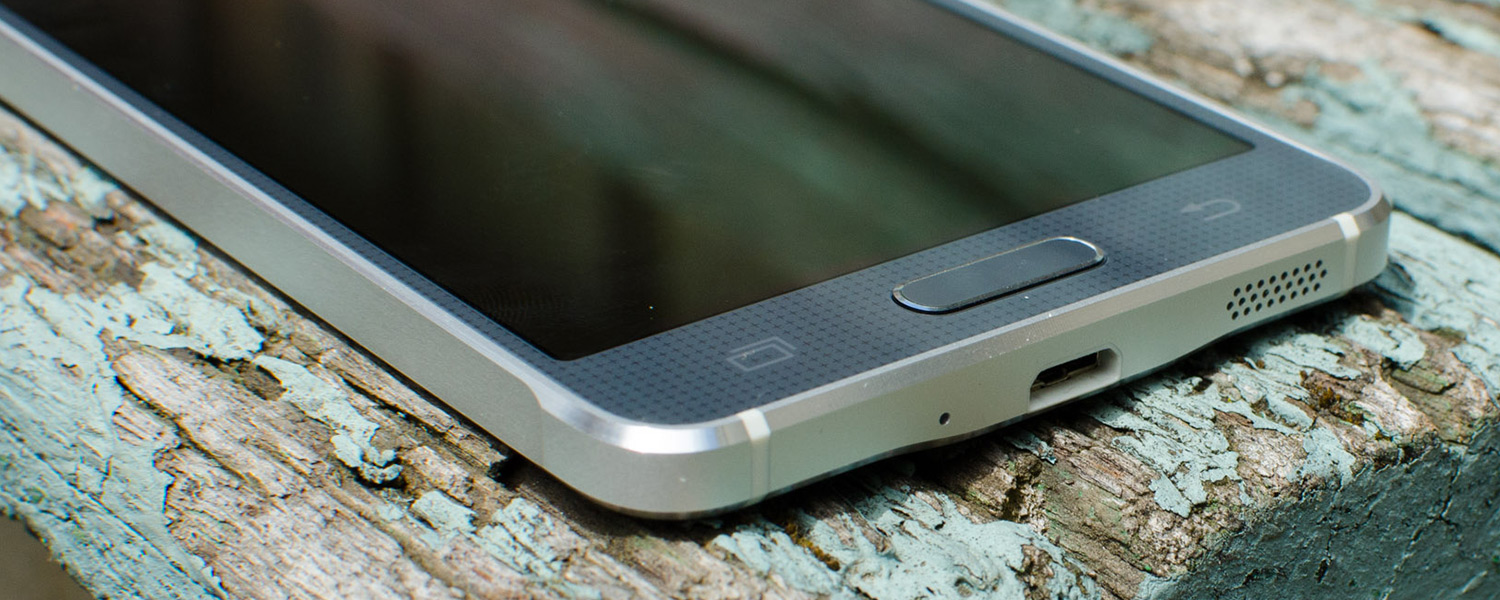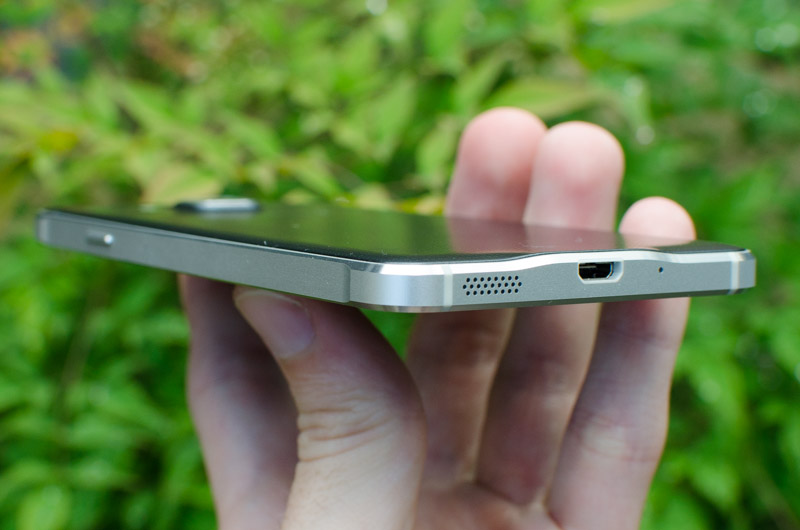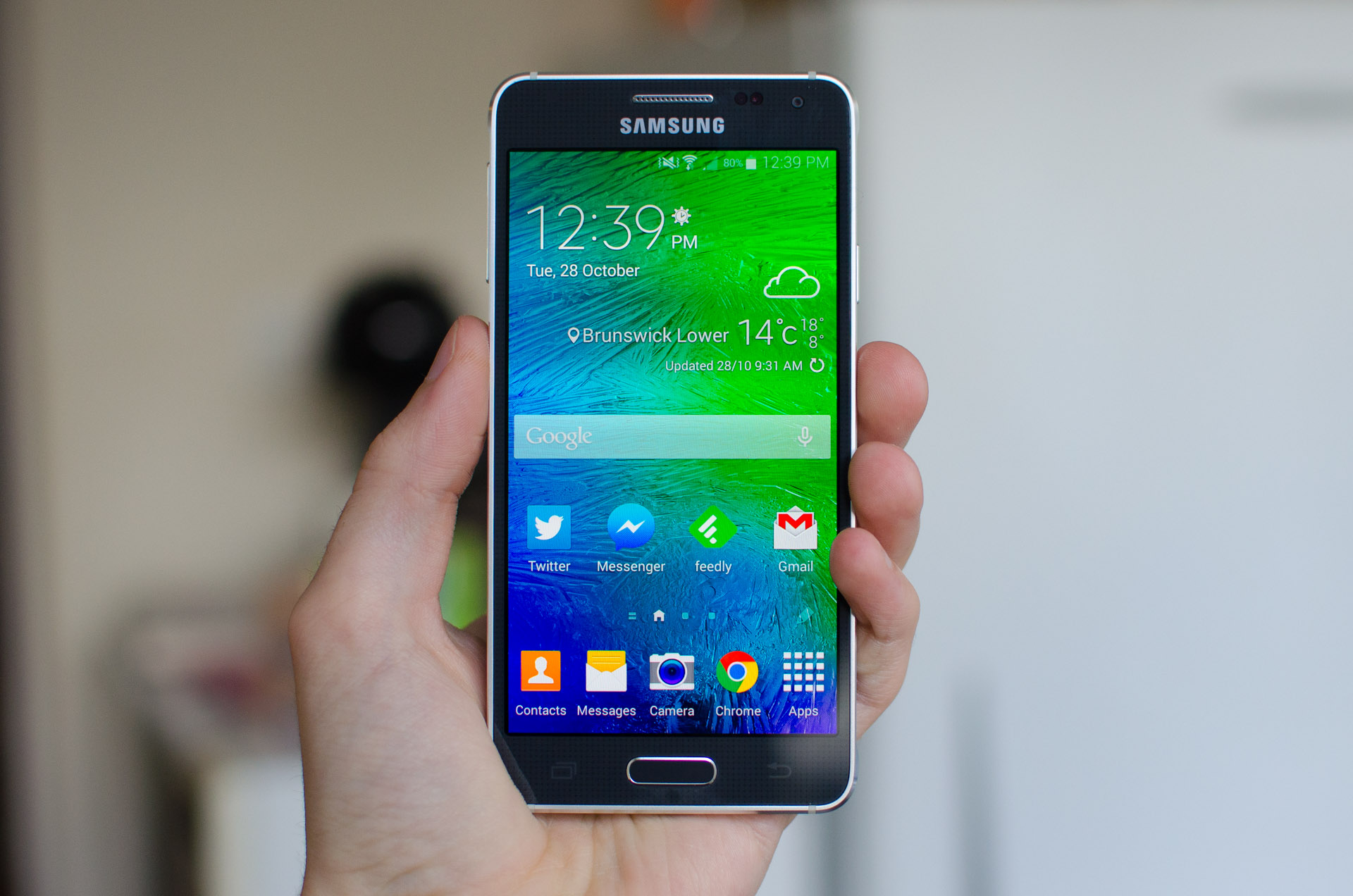Final Thoughts
The Samsung Galaxy Alpha is one of those smartphones that I like, but wouldn't recommend over the current crop of high-profile flagships on the market today.
The design of the Alpha is certainly very nice, and a significant upgrade over the plastic mess Samsung has dished up over the past few years. The part-metal body is slim, light and portable, and thanks to the perfectly-sized 4.7-inch display, the device is easy to use with one hand or two. It also looks quite attractive, which is something that I haven't been able to say about too many of Samsung's previous flagships.
Some aspects of the hardware are top-notch. The performance from either the Snapdragon 801 or Exynos 5430 SoC, at peak, is fantastic, and both models come with high-end features like LTE and Wi-Fi 802.11ac. The display is also high quality, packing the typical AMOLED advantages such as vibrant colors, excellent viewing angles and an infinite contrast ratio.
Other aspects aren't as impressive. Even though the display's 720p resolution often isn't perceivably less sharp than a 1080p panel of the same size, the choice not to use a higher resolution panel means Alpha owners aren't getting the latest and greatest technology. For some people this isn't a major issue, but the displays on devices like the Galaxy S5, HTC One M8 and Sony Xperia Z3 are undoubtedly better.
Samsung has opted for a 12-megapixel camera on the Alpha, which takes pretty decent photos (provided it's not too dim), and has all the features of the Galaxy S5's camera including Ultra HD video capture. However the choice to downgrade from 16 megapixels to 12, especially if the sensor is actually 16 megapixels and Samsung is simply downscaling shots, is an odd one. Why not just keep the exact same camera setup as the Galaxy S5? It would look more attractive on paper and provide users with the choice to downscale photos on their own.
There are also some other caveats to opting for the Alpha over the S5. Although many of the features have transferred over to Samsung's newer and better designed device, such as the heart rate monitor and fingerprint sensor, others haven't. The Alpha is not waterproof, doesn't come with a micro-USB 3.0 port and inexplicably omits the microSD card slot.
But the main issue with the Galaxy Alpha is battery life, which isn't up to scratch when compared to other high-end Android devices available today. The battery itself is physically small, and delivers less stamina than most, if not all of its competitors. Combined with aggressive performance throttling, the Alpha is very disappointing in the battery department.
At more than $650 unlocked and outright, the Alpha is also an expensive device with nothing that really justifies the price tag. Sure, the design is one of the best I've seen from Samsung, but that's about the only thing it's got over the Galaxy S5, which retails for more than $100 less.
For now, the Galaxy Alpha seems like a concept; a glimpse into the future of smartphones at Samsung. I really liked the slim and elegant design, and on its own the device has a great display, solid camera and high-end performance. But pitch it against the competition, including Samsung's own Galaxy S5, and it's clear that there are just too many downsides to the Alpha for it to be recommended.
score
Pros: Slim, elegant design looks decent and makes the phone very easy to use. High-end peak performance in a 4.7-inch handset. Great display, even if it's only 720p. Camera is impressive in good lighting.
Cons: Substandard battery life with significant performance throttling. Several hardware shortcomings compared to other flagships. Expensive.



